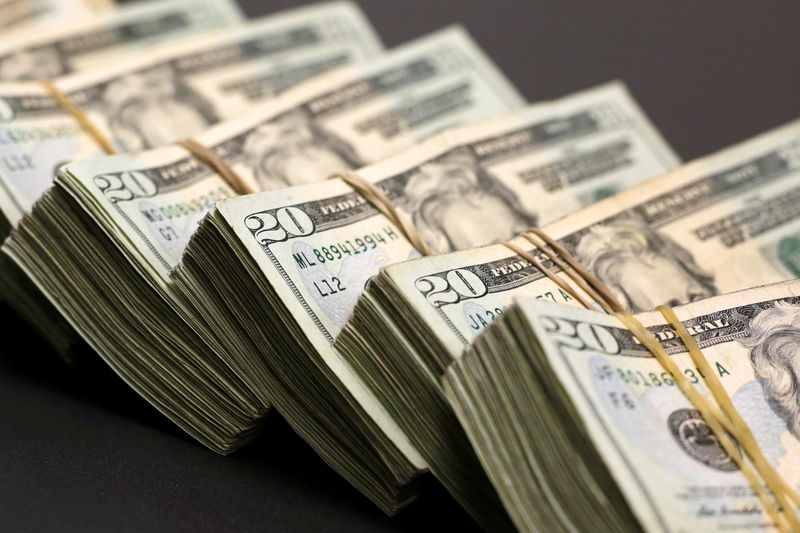 © Reuters.
© Reuters.
By Gina Lee
Investing.com – The dollar was up on Wednesday morning in Asia as investors expect aggressive monetary policies from U.S. Federal Reserve.
The U.S. Dollar Index that tracks the greenback against a basket of other currencies gained 0.23% to 102.007 by 12:27 PM ET (4:27 AM GMT).
The USD/JPY pair gained 0.36% to 129.15.
The AUD/USD pair edged down 0.14% to 0.7162, while the NZD/USD pair was down 0.46% to 0.6483. Data released earlier in the day showed that Australia’s GDP grew 0.8% quarter-on-quarter and 3.3% year-on-year in the first quarter of 2022.
The USD/CNY pair jumped 0.34% to 6.6954, and the GBP/USD pair edged down 0.16% to 1.2580. China ended a lockdown in Shanghai, offering hopes for economic recovery. The Caixin manufacturing purchasing index released earlier in the day was 48.1 in May.
“It's still too early to call a long-term DXY peak,” Westpac strategists wrote in a client note, referring to the dollar index.
“An aggressive 180bp in European Central Bank (ECB) rate hikes are priced through to end-2023, about the same as the Fed, yet it's hard to see the ECB moving toe to toe.”
The dollar index could range between 101 and 105 for “a while” before its bull trend resumed, the note added.
Benchmark 10-year Treasury yields hit 2.884% overnight, the highest since May 19, 2022.
With historic inflation remaining a concern, U.S. President Joe Biden met with Fed Chairman Jerome Powell on Tuesday. Biden said that he respects the central bank’s independence but also affirmed a “laser focus on addressing inflation” ahead of the November midterms.
To address inflation, the Fed will start shrinking its $8.9 trillion balance sheet and release its Beige Book, later in the day. New York Fed President John Williams and St. Louis Fed President James Bullard will also speak at separate events later in the day.
Given the signals from the Fed, markets have priced two half-point interest rate hikes in June and July.
On the data front, the U.S. jobs report, including non-farm payrolls are due on Friday.

